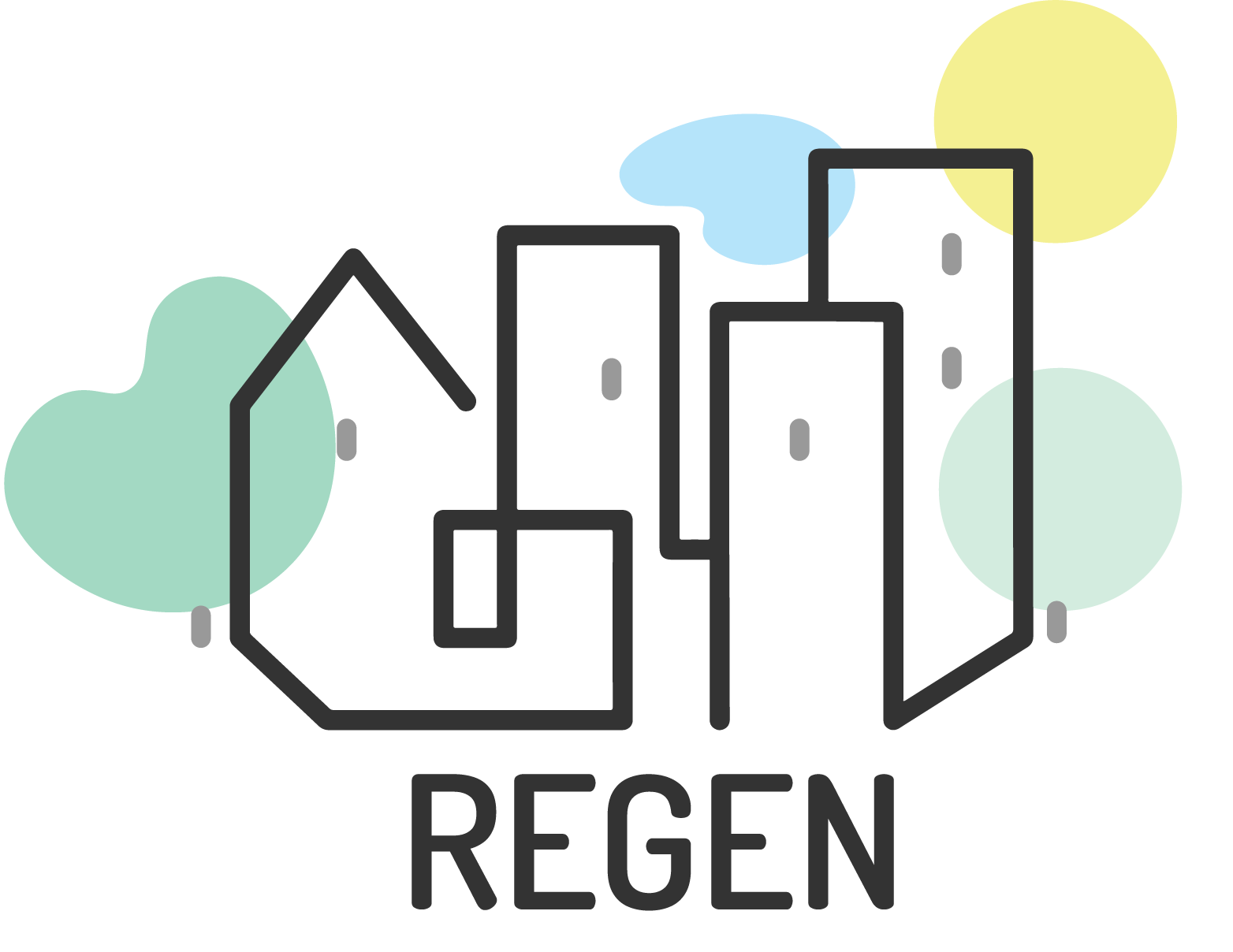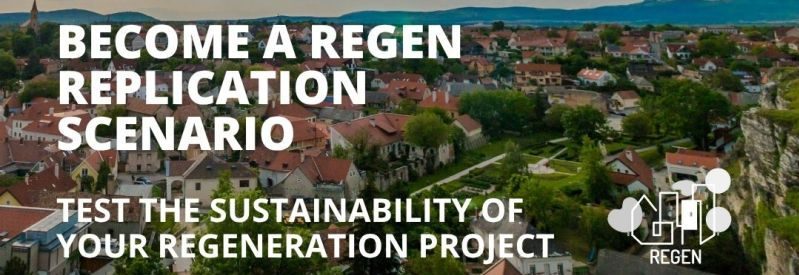About REGEN
The REGEN (Regeneration of neighbourhoods towards a low-carbon, inclusive, and affordable built environment) project, funded by the European Union under the Horizon Europe programme aims to support the decarbonization of European neighbourhoods.
It does so by employing a multifaceted toolbox powered by digital technologies and sustainability assessments, notably structured around the REGEN holistic Assessment Framework for Urban Regeneration (AFUR).
About AFUR and its application
AFUR promotes environmental sustainability, economic revitalization, and social inclusion.
It supports stakeholders in defining decarbonization pathways and enhancing climate resilience through targeted regeneration interventions, and is currently being adapted and applied across our four demonstration sites (Luxembourg, Spain, Ireland, and Italy)
Co-designed with local stakeholders, innovative participatory processes and digital tools will revitalize underdeveloped areas, improve quality of life, and attract new investment.

The 4 large-scale demos are led by the municipalities and are directly involved with the local stakeholders as well as other actors from the consortium.
Each demo site emphasizes a specific typology:

What is a replication scenario in REGEN?
In addition to the four real demo sites, 10 virtual regeneration projects will be selected to simulate the long-term impacts of regeneration interventions and assess their applicability across the EU.
👉 We are looking for regeneration projects, past or ongoing, which targeted one, or several, of the following domains of intervention:
- Built environment, e.g., interventions to improve the building performances, the quality of infrastructures
- Energy systems, interventions to reduce energy use, and sustainable energy sources
- Mobility and transport, e.g., interventions to reduce vehicle impacts, promote public transportation and active mobility, improve accessibility
- Circular economy, e.g., interventions to improve water and waste management, foster material circularity in the construction sector
- Land management, e.g., interventions to foster greener and healthier urban spaces, as well as related cultural activities)
2 replication scenarios have already been selected in the Netherlands:
- Replication 1: Groningen – NL
- Replication 2: Helmond – NL
What do we require from developing the replication scenarios?
In order to understand the impacts of your project, a specific description of the implemented/targeted measures will be required, as well as measured/estimated data depending on the targeted domain(s), in particular:
- Cadastral building information
- Energy supply data
- Mobility behaviours and transport specifications
- Waste disposal and recovery scenarios
- Exterior surface data
Any additional information on the environmental and socio-economic impacts (e.g. population characteristics) of the project studied will be considered.
Depending on the domain(s) of intervention of your project and the data you have available, we will be able to propose a number of indicators to assess the long-terms impacts of your regeneration project.
Why participate?
By becoming a replication scenario, your regeneration project could:
- Collaborate with experts: connect with a consortium of 23 European partners, including research institutions, municipalities, and industry leaders, to share knowledge and best practices.
- Assess the impacts of your sustainable solutions: apply AFUR to better understand the benefits and potential drawbacks of interventions and thus promote environmental sustainability, economic revitalization, and social inclusion.
- Support the community engagement: the evaluation results can be used as facilitation material within citizen participation activities, to be able to co-design regeneration solutions with rich and transparent information.
- Showcase your project in a LIST’s map server: the Luxembourg Institute of Science and Technology (LIST) developed the iGuess geospatial platform which provides a novel framework for development and implementation based on OGC standards. It uses the WFS, WMS, WCS, and WPS standards. https://iguess.list.lu/
- Capacity building: enhance the credibility of the REGEN interventions catalogue and support the transfer of knowledge on delivering resilient urban regeneration across Europe. They will also provide insights into different methodologies for measuring the impacts of regeneration efforts.
Who should apply?
Cities across Europe that are committed to sustainable urban development and are interested in applying REGEN’s assessment methodologies to their local context.
Developers with regeneration projects, whether urban, suburban, or rural, if you are facing challenges related to climate change, socio-economic disparities, or aging infrastructure, this opportunity is for you.
How to apply?
👉 For more information and to express your interest in becoming a replication scenario, please fill out this form by January 31st 2026.


No responses yet